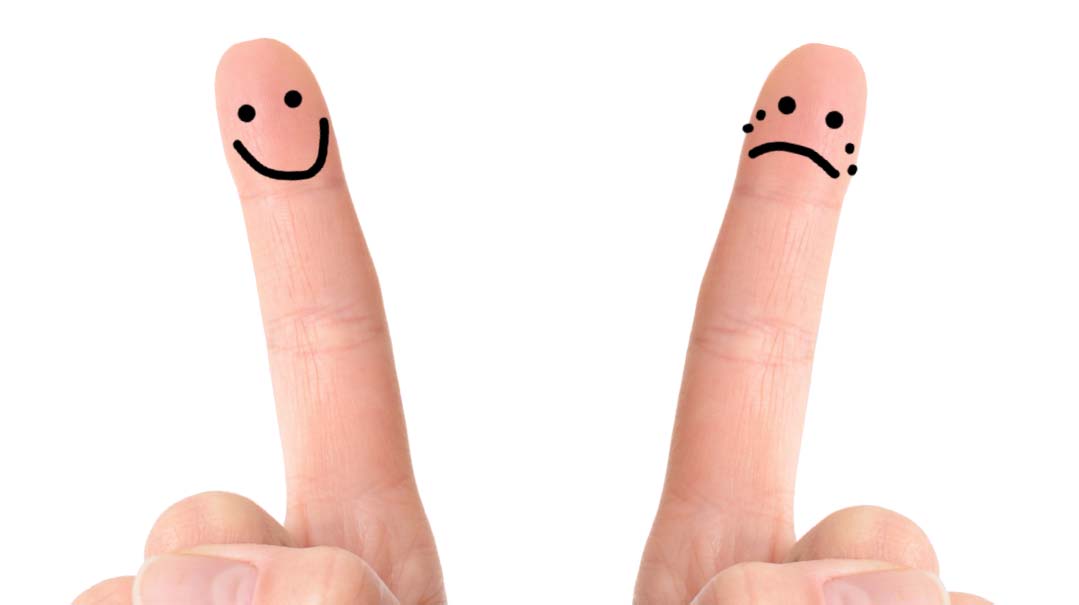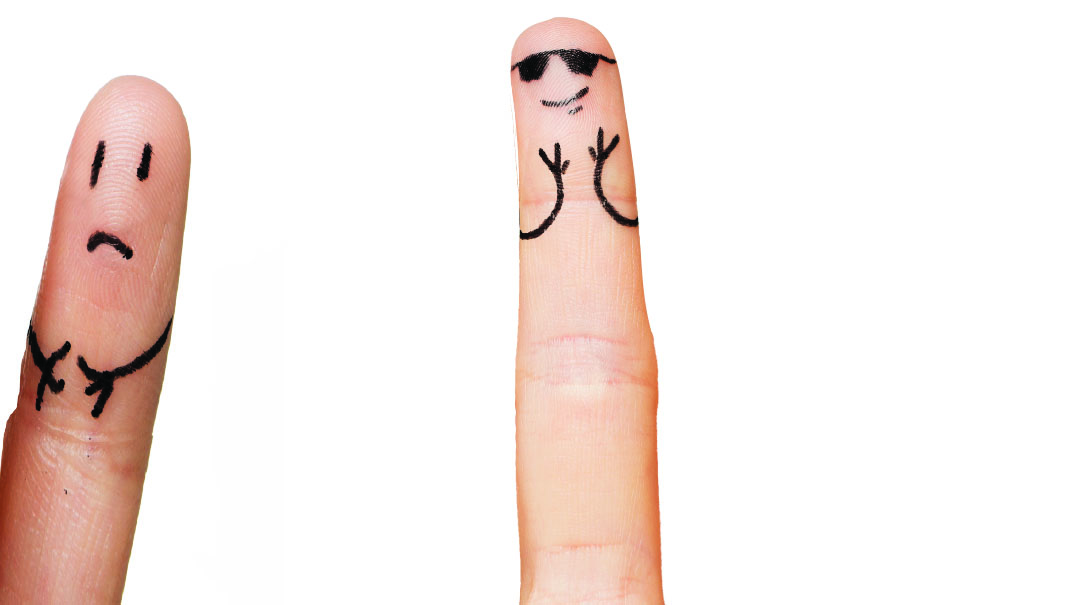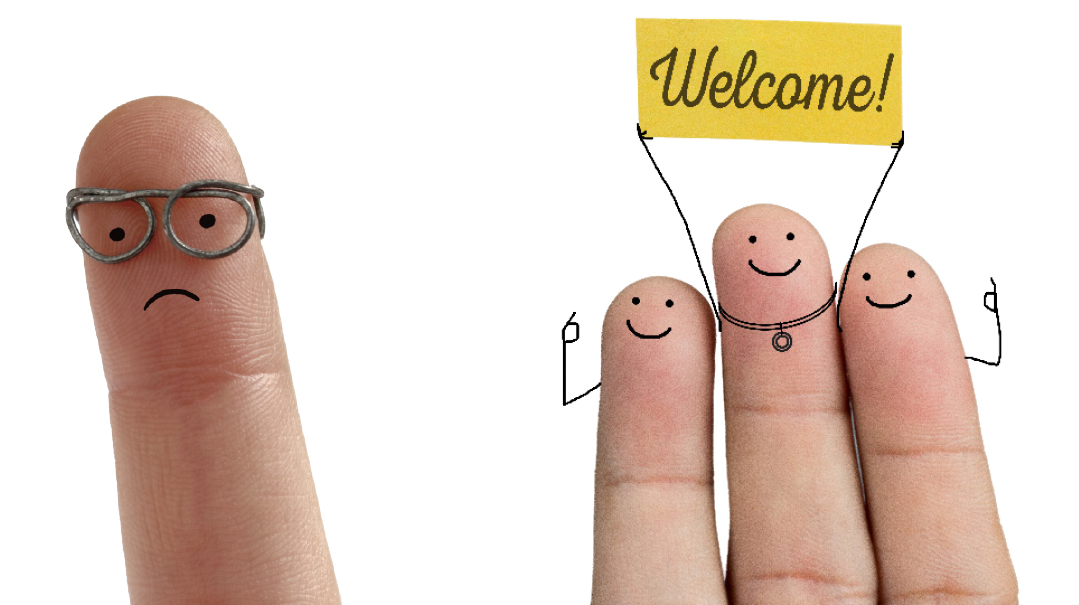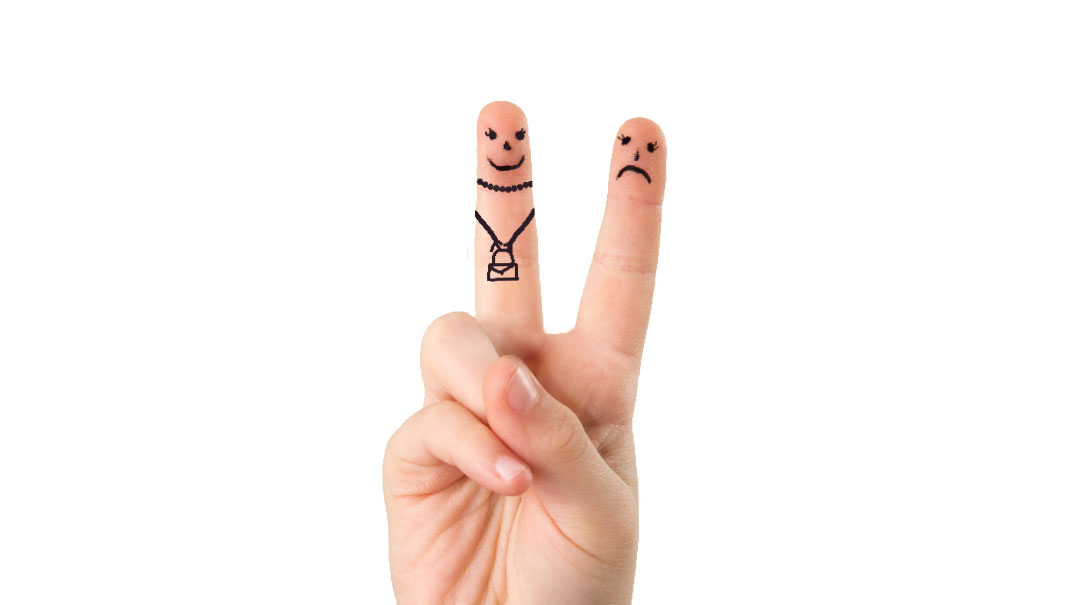My Fickle Friend Leaves Me Feeling Insecure

Is it any wonder that I feel like a yo-yo? What do I make of her on-again-off-again friendship habits? And why do they make me feel so insecure?

Q:
At 39 years old, I dislike feeling as if I’m a sophomore in high school.
I thought I left social insecurities behind decades ago, only to find myself in an uncomfortable, confusing situation.
I met Yocheved several years ago when she moved to my neighborhood. We hit it off immediately; she called often with various questions, I called to check up on her, and a friendship was born. When she called, even if only to ask where the shaatnez check was located, we ended up schmoozing for a while.
Over time, I noticed a pattern. Yocheved likes her space; she’s a busy person with a big family and full-time job, and it seems that friends are not a high priority. She doesn’t thrive on friendships like other women do. (Like I do?)
I know Yocheved values our relationship and considers me a close friend. Yet we view friendships so differently that the dynamics are difficult for me. I believe friendship is an ongoing thing. You call, you keep up on a regular basis. Yocheved can go AWOL for a month, and suddenly she’ll call and pick up right where we left off — schmoozing, laughing, asking about an upcoming shiur, etc. We’ll go two weeks speaking very often (and she calls me just as much as I call her), and then I can’t reach her for the next two weeks. Then she’ll call one night and start all over again.
I’ll get Yocheved’s voice mail for days, even at times I know she’s home. Sometimes I find myself ignoring her calls just because I don’t want to feel like I’m always available to her — and then I hate myself for being so immature.
When I was expecting my last baby, Yocheved was so excited. “You’d better call me right away!” she kept telling me toward the end. And, of course, I did. After I gave birth, we called our mothers, grandmothers, sisters — and then Yocheved. She came rushing to the hospital with balloons, a layette, and a milkshake.
Three weeks later her oldest got engaged. I found out the following afternoon… from Yocheved’s neighbor whom I met in the supermarket. I was beyond hurt, and when she finally did call me to tell me about the vort and I asked, as nonchalantly as I could, why she didn’t tell me right away, she responded that it was right away — it had only happened the night before, and things had been crazy and hectic…
Is it any wonder that I feel like a yo-yo? What do I make of her on-again-off-again friendship habits? And why do they make me feel so insecure?
A:
Mrs. Shayna Malka Wachtfogel, LCSW, DRTT is a therapist in private practice in Lakewood, New Jersey, with a specialty in relational trauma, family-of-origin issues, and complex PTSD.
There are several approaches to understanding the above scenario: One is to accept it at face value, and another is to examine more deeply what might be creating these insecure feelings. Choose which speaks to you more.
You seem to have enough evidence to reassure you that Yocheved genuinely likes and cares about you, and she’s made it clear that she values your relationship. You recognize that she’s a busy person and appreciates her space, and it seems that friends are “not a high priority” for her right now.
That’s not a bad thing. If her nature is such that she “doesn’t thrive on friendships,” then this is how it will play itself out in this relationship. You, on the other hand, seem to enjoy more ongoing communication and connection in a friendship. There are many people like you, who value this quality in a relationship. You each have different needs and styles. Neither is right or wrong.
There may also be other factors that contribute to this dynamic. This includes differences in personality, stages in life, lifestyles, family and/or work responsibilities, etc. It seems that Yocheved, for whatever reason, is less available to invest in the friendship at the level that you wish. You feel like a yo-yo because she’s not operating the way you do, although in reality, she doesn’t seem to have actually offended you or given you any reason to question her regard for you.
You have a choice. Are you prepared to accept the gifts that this relationship has to offer? Or is it too frustrating and disappointing, and therefore not worth it for you?
This is your decision. Instead of feeling like a victim or yo-yo, you can make this choice from a place of empowerment. You can feel the disappointment and frustration, yet realize that you can never change other people. We can only change the way we relate to others and our expectations of them. Thus, you can choose to accept the friendship for what is has to offer, and/or seek out friends who operate similarly in relationships.
In the second approach, we can examine and consider a deeper reason to explain the feelings of insecurity. It’s possible that what’s really happening is the reenactment of an old insecurity resurfacing.
There are events in our past — you mention high school — that may have had a profound impact on our sense of well-being and security. As adults, we assume that because we’ve matured, the old hurt no longer affects us. Unresolved past wounds have a way of manifesting themselves as exaggerated reactions in the here and now.
As a teenager you might have had an experience that left you feeling insecure, and your relationship with Yocheved might be triggering that, tapping back into an old rejection or insecurity. If you don’t work through sorting that out, it’s going to continue to be a recurrent theme in current and future relationships.
It’s possible that without realizing it you are hoping that a satisfying relationship with Yocheved will repair the old hurt. While the relationship may offer you a certain level of satisfaction, if you’re experiencing a deep feeling of insecurity, a true sense of security will not be fully restored unless it comes from within.
To facilitate this, acknowledge that no intentional offense was committed by Yocheved. (For speculation’s sake, had you told Yocheved that you were hurt that you didn’t know about her daughter’s engagement earlier, would she have invalidated you? Brushed you off, or not been empathetic? Or would she feel badly that you were hurt? Again, is the insecurity coming from her or from you?)
As adults, we’re responsible for taking ownership of our own sense of security. If a reaction to a situation is exaggerated, it’s likely you’re dragging along old baggage into the present. Yocheved may not necessarily be wronging you intentionally, but she is unknowingly and inadvertently pouring salt onto an old wound. That “wound” might even go back further to earlier experiences in childhood, creating intense pain in adulthood, in which case the task of regaining security sometimes requires professional support.
In the final analysis, no amount of closeness to Yocheved is going to fill that void. While no relationship can offer you full sense of security, you can by learning how to affirm yourself and recognize your own value, which is the greatest gift you can give yourself, and by extension, your relationships.
Fab Friendships
Take a look at flourishing relationships around you. You’ll probably find a healthy mix of the following elements:
- Interdependence — the right balance of being self-sufficient, independent, and also dependent in a relationship. Knowing how and when to give and take. It’s not always easy to take, but that’s part of a relationship.
- Healthy boundaries — knowing and respecting the boundaries of each relationship. Knowing what to take and what to give.
- Empathy — the ability to be emotionally present and validating, but without taking ownership of the other person’s issues.
- Accountability — being able to admit to making mistakes in a relationship. This includes being able to tell the other person if there’s a hurt, and taking responsibility if you were the one who has caused a hurt.
(Originally featured in Family First, Issue 645)
Oops! We could not locate your form.












